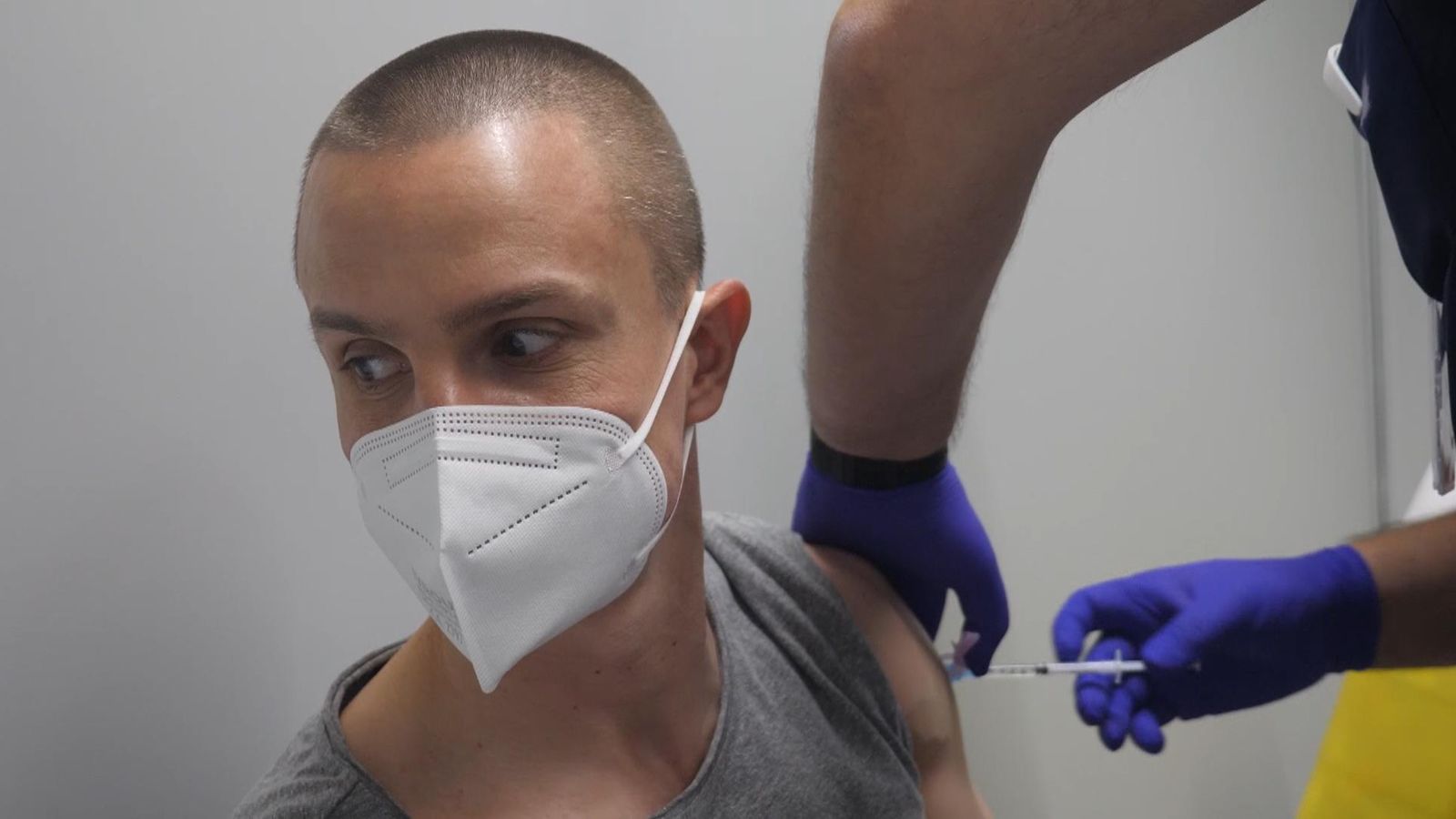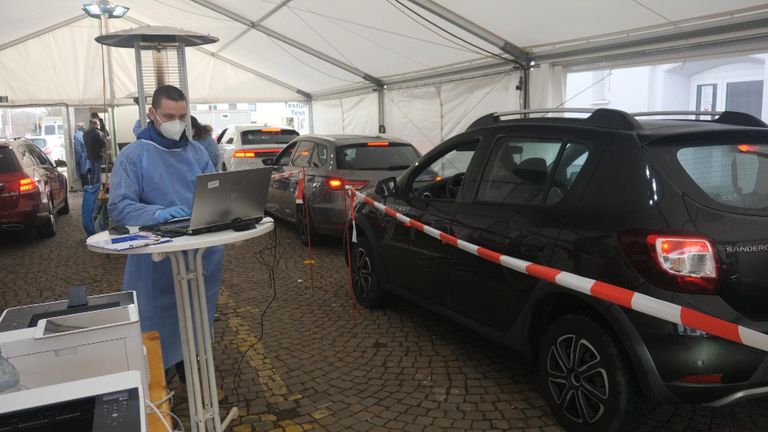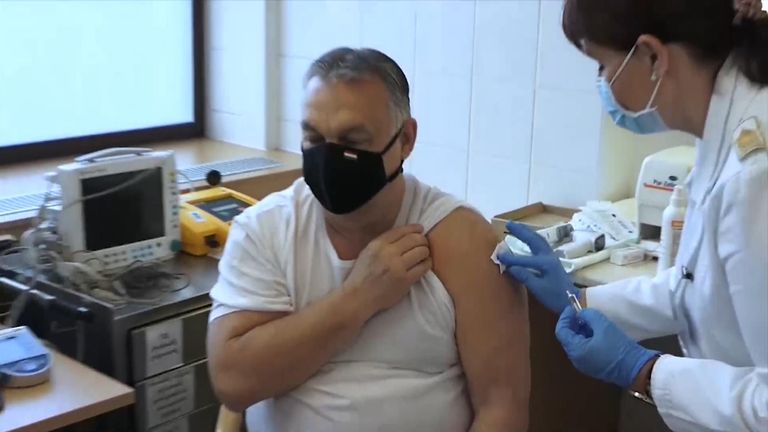French residents who travel to Germany daily for work have reacted angrily after being told they must now get COVID tests every two days in order to cross the border.
Germany introduced the measure earlier this week as infection rates remained high in the French border region of Moselle – but locals say it destroys the EU’s principle of free movement.
Sky News spoke to Laura Jarych, who lives in France but works in a German hotel just two minutes drive away. For decades she has made her journey uninterrupted – but the morning we meet she’s had to queue in a line of vehicles for her test. She is furious.
Live COVID updates from the UK and around the world
“I am angry, very angry,” Laura tells us. “And I think that the 20,000 people who are switching between the two countries in this area feel the same thing.
“We feel like animals because you go inside a drive-in with the car and it’s one after the other and the cars are waiting a long time and it just ‘come, make the test and pass’.”
The inconvenience is one thing, but principle is another. When we talk to people waiting in their cars at the tented testing area, one man says: “It’s a very bad feeling because the idea of Europe, free borders, is away now. I feel sad.”
Another woman tell us: “It’s a terrible situation as it’s not possible to come every two days and make a test.
“I’m a German person and I’m living in France. It’s like a regime – I can’t live free and I can’t go where I want to go.
“It’s 10 steps back.”
We were only able to find one person in the queue who said she understood and accepted the situation, telling us: “It’s OK for me, I work for a company in Germany, I live in France. It’s not really that bad.”
She admitted that she did feel frustrated by the measure but said it posed “another chance to beat this horrible virus“.
The issue, however, highlights broader tensions over the EU’s strategy against coronavirus – especially with vaccinations.
Coordinated centrally by the European Commission, the vaccine rollout has not been Brussels’ finest hour. Officials admit approvals and orders were too slow and production difficulties underestimated.
The AstraZeneca vaccine was given the green light across the EU more than a month ago – but France and Germany both restricted recipients to the under-65s because of a lack of data.
There has since been strong public unease about its safety and is something that might not be erased despite both countries now offering the AstraZeneca jab to older people. Germany confirmed that decision today.
“I think it’s a problem of perception for a lot of people,” Germany immunologist Carsten Watzl told me.
“So when it was first licensed, the efficacy was only given 60% and then there was this story that in South Africa that it was not at all efficient to prevent infections with the variant or the mutant that is found there.
“All this together has created some negative PR for this vaccine.”
France, Germany and other EU nations desperately need many more vaccines – and frustration with the rollout has prompted several countries to break away.
Today, the leaders of Denmark and Austria travelled to Israel to try and strike deals for supplies to their own nations. It’s a move that has promoted some criticism at home.
Danish MEP Margrete Aucken, a member of the European Green Party, said that while this wasn’t necessarily a failure of the EU, it showed “some of the weaknesses in the EU construction” that more hasn’t been done together for the common goal.
“But I think they are improving this year,” Ms Aucken added. “I really dislike that some member states are showing ‘we can do best ourselves’.
“None of us are best when we’re alone. None of us.”
However, Denmark and Austria are not alone in seeking outside help: the Hungarian prime minister was filmed recently getting a Chinese vaccine after getting frustrated with the EU’s programme.
Hundreds of thousands of Russia’s Sputnik V jabs have also been delivered to Slovakia, despite not being approved by the European Medicines Agency.
The vaccine watchdog has only just begun its review of Sputnik V, according to a statement released on Thursday.
It’s clear the COVID crisis has exposed tensions between the idea of European cohesion and national self-interest.
The EU as a body hasn’t met all the needs of its citizens. Now there are questions not just about the health of the population but the health of the union itself.
Source: Read Full Article








